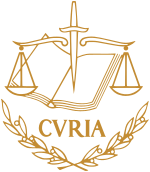Pfaffenthal-Kirchberg funicular
Funicular railways in LuxembourgPages with no gauge entered in Infobox rail line

The Pfaffenthal-Kirchberg funicular is an automated funicular in Luxembourg City. The line links Pfaffenthal-Kirchberg railway station, on Société Nationale des Chemins de Fer Luxembourgeois (CFL) Line 10, to Rout Bréck – Pafendall tram stop, on Luxtram, near the European Investment Bank headquarters. The line is adjacent to the landmark Grand Duchess Charlotte Bridge, which is crossed by the tram line and which passes over the railway line.Construction work for the line started in early 2015. It has been in service since 10 December 2017, alongside Pfaffenthal-Kirchberg railway station and Luxtram.
Excerpt from the Wikipedia article Pfaffenthal-Kirchberg funicular (License: CC BY-SA 3.0, Authors, Images).Pfaffenthal-Kirchberg funicular
Rue Saint-Mathieu, Luxembourg Pfaffenthal
Geographical coordinates (GPS) Address Nearby Places Show on map
Geographical coordinates (GPS)
| Latitude | Longitude |
|---|---|
| N 49.618963888889 ° | E 6.1334944444444 ° |
Address
Rue Saint-Mathieu
2138 Luxembourg, Pfaffenthal
Luxembourg
Open on Google Maps










